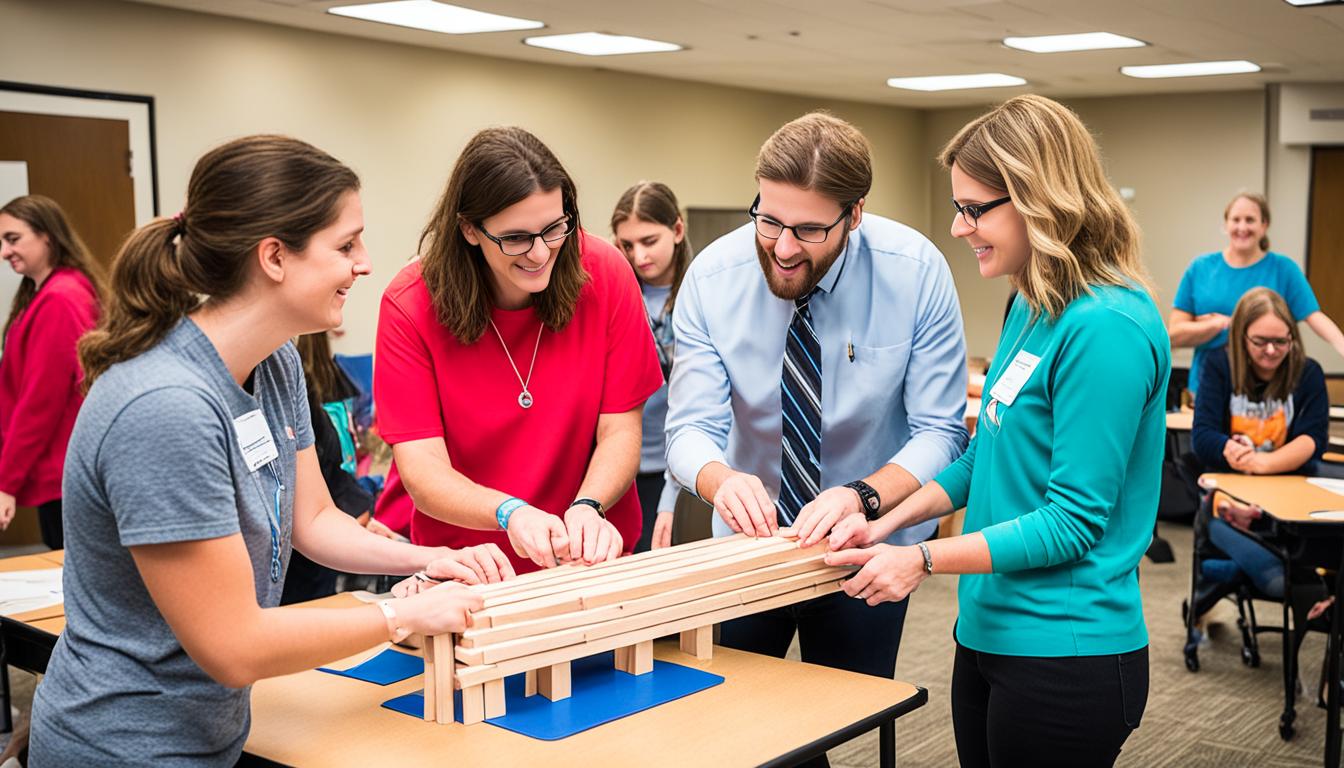School-based speech-language pathologists (SLPs) play a vital role in enhancing students’ communication skills and supporting their academic success. They are integral members of the educational team, working collaboratively with educators and administrators to address the diverse communication and language needs of students. SLPs provide individualized interventions, employ evidence-based practices, and leverage their expertise to bridge the gap between classroom instruction and the unique communication requirements of each student. Through their partnership with teachers and school staff, SLPs help students develop the communication competencies necessary for academic achievement and social-emotional well-being.
Key Takeaways
- School-based speech-language pathologists (SLPs) are essential members of the educational team, collaborating with educators and administrators to support students’ communication and language development.
- SLPs provide individualized interventions and employ evidence-based practices to bridge the gap between classroom instruction and students’ unique communication needs.
- Through their partnership with teachers and school staff, SLPs help students develop the communication skills necessary for academic achievement and social-emotional well-being.
- SLPs leverage their expertise to address the diverse communication and language needs of students, ensuring their academic and social success.
- The role of SLPs in schools is vital in enhancing students’ communication skills and supporting their overall educational and personal development.
Unveiling the Scope of Speech-Language Pathologists in Educational Settings
Speech-language pathologists (SLPs) play a vital role in supporting students’ communication and language development within the educational system. By collaborating closely with educators and administrators, SLPs work to ensure that all students have access to the language and literacy support they need to succeed both academically and socially.
Collaboration with Educators and Administrators
SLPs in educational settings work hand-in-hand with teachers, counselors, and school administrators to integrate evidence-based communication and language practices into classroom instruction. This collaborative approach allows SLPs to tailor their interventions to the specific needs of individual students, while also providing valuable guidance to educators on how to foster language development in the classroom.
Supporting Student Communication Skills
Beyond their work with educators, SLPs also provide direct support to students, addressing speech, language, and cognitive-communication challenges through one-on-one or small-group interventions. By targeting these areas, SLPs help students develop the communication skills they need to participate more fully in academic and social activities, ultimately supporting their overall academic success and well-being.
| Role of SLPs in Educational Settings | Key Responsibilities |
|---|---|
| School Collaboration |
|
| Student Support |
|
“By supporting students’ communication skills, SLPs help them participate more fully in academic and social activities, fostering their overall academic success and well-being.”
school based speech language pathologists: Facilitating Language Development
As guardians of student communication, school-based speech-language pathologists (SLPs) play a pivotal role in fostering language development and addressing speech and language delays. Through comprehensive assessments, these dedicated professionals identify communication challenges faced by students and devise individualized intervention plans to help them overcome these barriers.
Early Intervention for Speech and Language Delays
Early intervention is the cornerstone of the SLP’s approach. By promptly addressing speech and language delays, these specialists empower students to improve their articulation, vocabulary, grammar, and other language skills necessary for academic achievement. This proactive approach ensures that students can actively engage in the learning process, leading to improved educational outcomes.
SLPs utilize a range of evidence-based strategies to support students’ language development, including:
- Targeted exercises to enhance phonological awareness and articulation
- Vocabulary-building activities to expand students’ lexical repertoire
- Structured sessions to improve grammatical skills and sentence structure
- Collaborative activities to foster pragmatic language skills and social communication
By addressing speech and language delays early on, school-based SLPs empower students to overcome communication barriers and unlock their full academic potential. Through their dedication and expertise, these professionals play a vital role in supporting the holistic development of students, ensuring they have the linguistic tools to thrive in the classroom and beyond.

“Early intervention is key to helping students with speech and language delays reach their full potential. School-based SLPs are instrumental in providing the targeted support and individualized attention these students need to succeed.”
Conclusion
In the realm of education, school-based speech-language pathologists (SLPs) are indispensable assets, working tirelessly to support students’ communication skills and academic success. By collaborating seamlessly with educators and administrators, SLPs integrate evidence-based practices into the classroom, ensuring that all students have access to the language and literacy support they need.
Through their specialized expertise, SLPs provide targeted interventions to address individual communication challenges, fostering the overall academic achievement and well-being of the students they serve. They play a vital role in bridging the gap between classroom instruction and the unique communication requirements of each learner, empowering them to thrive both academically and socially.
As advocates for communication and language development, school-based speech-language pathologists are essential partners in creating inclusive and supportive educational environments. Their dedication and commitment to student success make them indispensable members of the educational team, contributing to the holistic growth and development of the young minds they serve.




